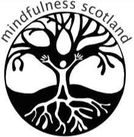This page provides a summary of research papers on the benefits of mindfulness for frontline staff and first responders. Please email us if you would like more information on any of these.
|
O'Mahoney et al. (2017)
|
13 medical carers looking after children with life-threatening illnesses or bereaved children. Nine session, seven week course of tailored interventions for staff. Included discussion sessions to foster group cohesion, psychoeducation, communications skills, expression of, and acceptance of feelings, self compassion and experiential mindfulness sessions. Significant reductions in PTSD and depressive symptoms over duration of the course.
|
|
Berceli and Napoli (2006)
|
Individuals and organisations can develop traumatic reactions as a result of working with trauma over extended periods of time. Organisational trauma can lead to breakdown of professional relationships and organisational cohesiveness. Recommends Mindfulness-based trauma prevention program: a) mindful breathing and body scan b) trauma releasing exercises (validated by Berceli in context of war trauma) c) repetition of mindful breathing and body scan. A short program designed to acknowledge and release trauma in the field before it becomes chronic. Intended to be used as a self-help tool.
|
|
Eriksen and Ditrich (2015)
|
Disaster researcher and experienced Buddhist meditator co-authored paper. Recommentds mindfulness practice to offset vicarious PTSD among disaster researchers (e.g. ethnographers studying Australian bushfires). Skills developed through researcher’s mindfulness practice: a) learning to mindfully monitor internal reactions during fieldwork and data analysis b) intentionally standing back and witnessing during data analysis c) creating safe spaces and time to reflect eg. Calming activities in nature d) taking breaks from e-mail and social media e) actively seeking out fun activities after work.
|
|
Thompson et al. (2011)
|
Review article suggesting that mindfulness and acceptance are associated with greater psychological adjustment following trauma exposure, while experiential avoidance, persistent dissociation, and coping strategies involving emotional disengagement are associated with more severe PTSD symptoms and related psychopathology. Draws on theoretical models from MBCT and ACT.
‘The present review suggests that mindfulness and acceptance may also have a place in programs designed to prevent the development of PTSD in individuals who have a high prob- ability of exposure to a potentially traumatic event… A recent study… investigated the protective effects of mindfulness training delivered to U.S. Marine Corps reservists prior to deployment to Iraq, and found that more mindfulness practice was related to lower negative affect and greater positive affect post-deployment (Jha, Stanley, Kiyonaga, Wong, & Gelfand, 2010).’ |
|
Geller et al.
|
Panel discussion suggesting mindfulness as a component of clinician self-care, in order to reduce burnout.
|
|
Muir and Keim-Malpas (2019)
|
Pilot mindfulness intervention (emergency resiliency initiative) in a trauma centre emergency department. Three mindfulness educational/experiential sessions delivered once a month at staff meetings: Introduction to Mindfulness, Practical Applications of Mindfulness, and Cultivating Compassion. Pre-to-post trial significant increase in personal accomplishment scores and decrease in emotional exhaustion score.
|
|
Mealer et al. (2014)
|
ICU nurses. Multimodal intervention program including MBSR practices, exercise, expressive writing, psychoeducation and CBT in response to events. Significant reduction in depression scores in intervention group. Intervention and control groups had reduction in PTSD and improvement in resilience scores. Control group logged the amount of time they spent exercising. Small numbers and recommended larger trial to assess significance.
|
|
Duarte and Pinto-Gouveia (2016)
|
Six week abbreviated MBSR programme for oncology nurses Significant decreases vs control group, in compassion fatigue, burnout, stress, experiential avoidance, and increases in satisfaction with life, mindfulness and self-compassion, with medium to large effect sizes.
|
|
Harker et al. (2015)
|
Workers in psychology, social work, counselling, youth and foster care surveyed to explore the predictive relationship between resilience, mindfulness, and psychological distress.
Higher levels of mindfulness were a significant predictor of lower levels of psychological distress and burnout. Findings suggest that cultivating resilience and mindfulness in these groups may help prevent burnout and secondary traumatic stress. |
|
Hotchkiss (2018)
|
Survey of 324 hospice professionals. Mindful self care was positively correlated with compassion satisfaction, and negatively correlated with burnout and secondary traumatic stress. ANOVA design.
‘The use of mindful personal self-care activities to diminish secondary traumatic stress and burnout to cultivate compassion satisfaction may be complemented by various workplace care interventions.’ |
|
Thieleman and Cacciatore (2014)
|
Survey of 41 workers at an agency for the traumatically bereaved. Mindfulness positively correlated with compassion satisfaction and negatively correlated with compassion fatigue.
|
|
Nitzan-Assayag et al. (2017)
|
Four-session mindfulness training for 38 adults recently exposed to a potentially traumatic event. Sessions 7 days apart over 3 weeks, plus light home practice. Decreased thought suppression mediated the effects of mindfulness training on anxiety sensitivity, rumination, and negative affect, as well as posttraumatic stress and depression symptoms. Cognitive defusion (reduced reactivity) mediated the effects of mindfulness training on anxiety sensitivity, negative affect, and posttraumatic stress symptoms, but not rumination or depression symptoms. In summary, reduced reactivity to and reduced suppression of thoughts mediated the effects of mindfulness training on recovery outcomes following exposure to potentially traumatic events.
|
|
Setti and Argentero (2014)
|
Survey of 176 firefighters. Mindfulness negatively predicts all the vicarious trauma and psychosomatic symptoms.
‘Our findings suggest the importance of developing long-term interventions, aimed at increasing mindfulness among firefighters, who may be helped in effectively facing both chronic and acute stressors.’ |
|
Stanley et al. (2019)
|
Survey of 831 firefighters. Greater PTSD symptoms were associated with more severe suicide risk; however, higher levels of two specific mindfulness facets, acting with awareness and non-judging of inner experience, attenuated this association. By contrast, higher levels of the observing facet of mindfulness potentiated the association between PTSD symptoms and suicide risk.
‘Suicide prevention initiatives among firefighters, particularly those experiencing trauma-related sequelae, might benefit from the inclusion of mindfulness-based practices alongside frontline empirically-supported approaches.’ |

